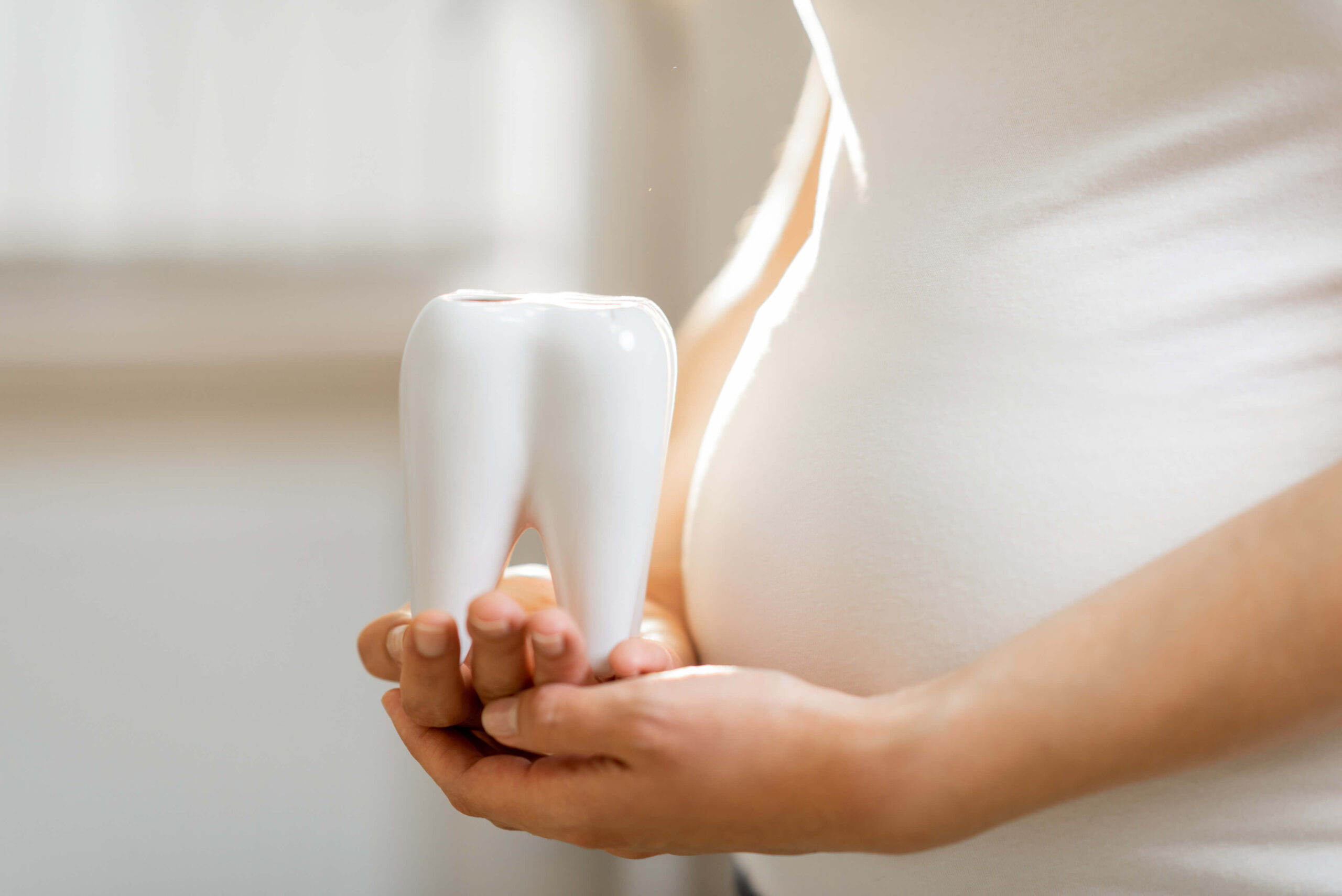Pregnancy is a transformative journey, and as an expectant mother, maintaining oral health becomes a crucial component of overall well-being. This chapter explores the impact of pregnancy on oral health and provides essential tips for expectant mothers to navigate this unique phase with care.
Impact of Pregnancy on Oral Health:
1. Hormonal Changes:
Pregnancy brings about hormonal fluctuations, particularly an increase in progesterone and estrogen. These changes can affect gum tissues, leading to an increased risk of gingivitis and gum inflammation.
2. Morning Sickness and Oral Care:
Morning sickness, a common occurrence during pregnancy, can expose teeth to stomach acids. Rinsing with water or a fluoride mouthwash after vomiting can help mitigate the impact on tooth enamel.
3. Gingivitis and Pregnancy Tumors:
Hormonal changes may contribute to gingivitis, characterized by swollen and bleeding gums. Some pregnant individuals may also develop “pregnancy tumors,” benign growths on the gums that typically regress after childbirth.
4. Increased Susceptibility to Cavities:
Changes in dietary habits, including cravings for sugary foods, can heighten the risk of cavities. Regular dental check-ups become especially important during pregnancy.
Tips for Maintaining Dental Well-being:
1. Prioritize Dental Visits:
Schedule a dental check-up early in pregnancy to address any existing issues and establish a preventive plan. Inform your dentist about your pregnancy, as some treatments may be postponed until after childbirth.
2. Maintain a Consistent Oral Care Routine:
Brushing at least twice a day and flossing daily are fundamental practices for preventing dental issues. Using fluoride toothpaste supports enamel strength.
3. Balanced Diet and Hydration:
Adopt a balanced diet rich in calcium, vitamins, and minerals. Adequate hydration is essential for overall health and can contribute to oral well-being.
4. Manage Morning Sickness:
Rinse your mouth with water or fluoride mouthwash after experiencing morning sickness to neutralize acids and protect tooth enamel.
5. Address Gum Sensitivity:
If you notice increased gum sensitivity or bleeding, discuss it with your dentist. Professional cleanings can help manage gingivitis and maintain optimal gum health.
6. Cravings and Dental Health:
While indulging in occasional cravings is natural, try to make mindful choices. Opt for healthier snacks and maintain good oral hygiene afterward.
7. Stay Informed About Dental Procedures:
Consult your dentist about any recommended dental procedures during pregnancy. Some treatments may be safely performed, while others may be postponed until after childbirth.
8. Postpartum Dental Care:
Following childbirth, continue prioritizing oral health. If any dental issues were postponed during pregnancy, address them in the postpartum period.
9. Educate Yourself:
Stay informed about the connection between pregnancy and oral health. Understanding the potential challenges allows you to proactively address them.
10. Communicate with Healthcare Providers:
Ensure open communication between your dentist and prenatal healthcare providers. This collaboration ensures a holistic approach to your overall health during pregnancy.
Maintaining oral health during pregnancy is a multifaceted endeavour that encompasses routine dental care, dietary choices, and proactive communication with healthcare providers. By integrating these tips into their prenatal care routine, expectant mothers can safeguard their oral health and contribute to the well-being of both themselves and their growing baby



